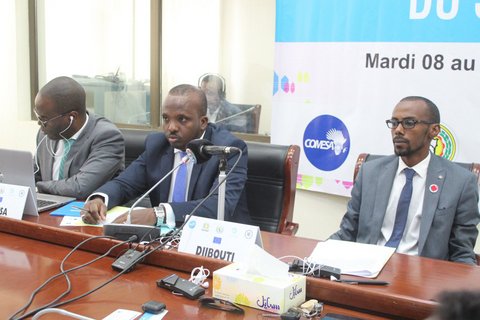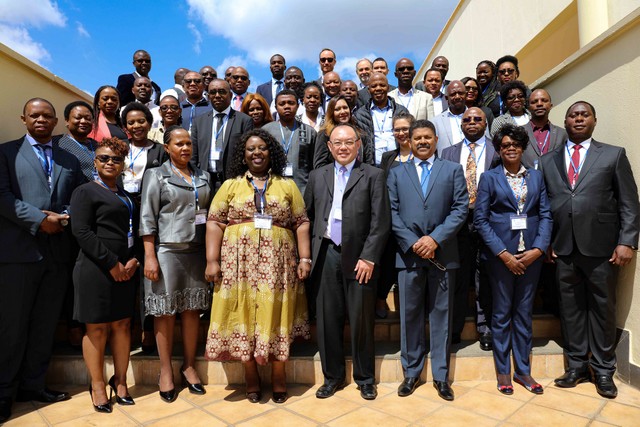Status of Energy in the COMESA Region
Addis Ababa, Thursday, March 5, 2020: The total installed power generation capacity in the COMESA region is 92,00 megawatts (MW) with Thermal power dominating at more than 69% and Hydro (large and small) accounting for 30%.
This was disclosed during the 9th Annual General Meeting of the COMESA Regional Association of Energy Regulators for Eastern and Southern Africa (RAERESA) that began today in Addis Ababa.
The Chairperson of RAERESA Dr Fredrick Nyang told delegates that the main challenge for many COMESA countries is that generation capacity is not enough to cover the nations own needs and allow for cross-border trade.
“Even though there are plans underway to improve the transmission capacity across borders, there is not yet enough transmission capacity to secure an unimpeded trade across the countries and regions,” he said.
Sixteen countries including Ethiopia, Burundi, Egypt, Kenya, Madagascar, Malawi, Mauritius, Rwanda, Seychelles, Sudan, Uganda, Zambia, Djibouti, Eritrea, Somalia and Tunisia attended the AGM.
Ethiopian State Minister of Water, Irrigation and Energy H.E Dr. Frehiwot Woldehana who opened the meeting observed that approaches are needed to increase generation capacity and minimize the current system losses of electricity. He noted that Africa was losing 12.5% of production time as a result of chronic power outages thus holding back the continent’s potential for growth.
Citing recent studies, the Minister said the low levels of competitiveness of countries in the local and regional markets was due lack of adequate infrastructure in energy in the COMESA region.
“Our region is a paradox of energy, richly endowed with power generating natural resources of which only few are harnessed, thus resulting in severe power shortfalls. We must tap our indigenous resources so that we are not dependent upon imports of fuel to light our cities and power our growth.” the Minister said.
As a way forward, he said there is need to move and evacuate energy efficiently from areas of production and surpluses to areas of deficit, domestically or across borders by investing in transport corridors of energy trade through transmission inter-connectors and pipelines.
In addition, the Cape to Cairo electricity corridor is on course with the ongoing implementation of the Zambia-Tanzania-Kenya (ZTK) power inter-connector project. This project will interconnect the Southern Africa Power Pool and East Africa Power Pool, enhance and pave the way for a competitive regional power market.
Assistant Secretary General, Programmes in COMESA Dr Kipyego Cheluget told the meeting that the regional bloc will continue supporting energy security enhancement in the region by facilitating domestication of adopted energy regulation instruments.
“In particular, we are focusing on guidelines relating to renewable energy such as Feed-in-Tariff, Power Purchase Agreement, Public Private Partnerships, Joint Development of Projects, Framework on Off-Grid Electrification, and Best Regulatory Practices for renewable energy development, which COMESA recently developed and adopted,” he said.
In his remarks, the Chairperson of RAERESA, Dr Fredrick Nyang invited COMESA Member States that have not joined the regional association of energy regulators to do so, to enhance sustainability of the regional energy market, through a harmonized regulatory framework.
“RAERESA has started to assist the Associate Members, who are in the process of establishing their regulatory authorities. Those countries are namely Comoros, Democratic Republic of Congo, Eritrea, Djibouti, Libya, Somalia and Tunisia.”



